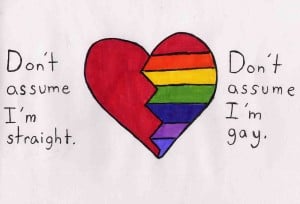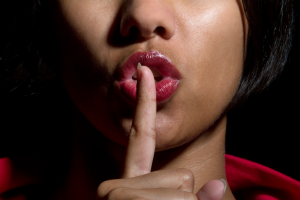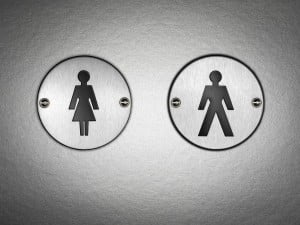I prefer to post about race and racism on social media as a way to spread information from perspectives that mainstream media and our educational system refuse to acknowledge.
Having these sorts of discussions online gives me the amount of time I need to compose my thoughts, draw on other resources, or call in reinforcements.
However, just because the Internet makes having difficult conversations more accessible, it doesn’t make it easier.
Facebook and other social media platforms are spaces where we can feel both vulnerable and exposed or affirmed and validated. But, it can also be a hurtful space.
When I post, even if it’s just sharing an article, I often prepare myself mentally and emotionally for people’s responses.
And as someone who chooses to treat Facebook like an educational tool, de-friending is not a preferred option if someone says something harmful – unless it’ comes down to self-preservation or safety. I want and need to engage and disrupt racism in its many forms, including casual, misguided, and unconscious racism.
When I make these posts or respond to other people’s racist comments, I often read things like: This isn’t just an issue of race. Your comments are aggressive. Why do we have to be politically correct? What if we all just got along?
There is usually a lack of empathy and an abundance of disdain, often from my White friends – and it manifests in judgmental and dismissive language.
For example, in pop culture discussions of racial representation in movies and TV shows, such as Emma Stone playing a mixed race Asian American and Native Hawaiian character, I saw a lot of “You’re being too sensitive. This isn’t a big deal. There are other larger problems.”
And throughout the Black Lives Matter Movement, I read posts from people that criticized Black anger by declaring the protests were too violent. Some people continue to declare that all life matters and the protests weren’t respectful of “all lives.”
In critiquing and challenging behaviors and actions that are part of oppressive systems, someone always cries out, “But not all [insert name of community here…men, white folks, cis folks, etc].”
While it’s clear that the commenter’s attempts are to silence me and override my very real experience with racism as a person of color, it’s sometimes difficult to articulate and identify why I feel that way. This is because passive aggressive racist statements are often normalized and hidden in our everyday interactions with each other – even when it’s written down and displayed in a post or comment.
These passive aggressive racist statements are also known as racially coded language. They hide obviously oppressive language by appearing as common vocabulary, good intentions, or seemingly “objective” common sense. They are sneaky.
Racially coded language is similar to microaggressions, but rather than directed at a specific individual, these phrases are most often used in discussions about social issues and current events.
No matter the intention of the speaker or user, racially coded language lands in a way that has the harmful impact of reinforcing racist ideologies. You can also find several resources online that specifically unpack phrases that reinforce anti-Black racism, such as thug or ghetto.
Looking for more examples of everyday racism on social media, I found that most of the instances that are documented and called out are explicitly hateful and vitriolic. It shows that we forget that racism is not just individual hatred, it’s systemic.
And systemic racism is harder to directly observe and thus harder to directly confront.
It’s quietly embedded in our everyday culture and social practice. Which is why it’s so important for me to respond and educate when I do encounter these instances.
Here are some ways to unpack other racially coded phrases you might encounter when discussing issues and events related to race and racism on social media:
1. ‘Not Meaning to be Racist’
Example: “I am not a racist.”
If someone doesn’t mean something to be racist, that doesn’t mean that what they’re saying isn’t rooted in racism. In instances like these, the reminder “impact not intent” is helpful. If you’re saying something harmful, your good intention doesn’t lessen that harm.
Of course, I like to think of myself as a good person, but regardless of my “goodness,” I do or say things that aren’t good. I sometimes say things that are downright hurtful.
When our friends or family say something that is implicitly racist, it doesn’t immediately take away their goodness.
Undoing racism is an arduous process that takes time and a lot of growth, vulnerability, and struggle. Disclaimers about good intention distract from the actual problem and also deny responsibility in being part of the solution.
Hidden behind this is “I don’t mean to be racist, but what I’m saying is pretty racist, yet I’m choosing to absolve myself from responsibility.”
When someone says this, they might be trying to distance themselves from racism – rather than being open to recognizing that racism is something we can mutually and passively participate in and reinforce.
Acknowledging that you’ve participated in racist behavior is so important because it is within that vulnerability that you can take the next steps towards education, growth, and change.
By choosing to hide behind this phrase, someone prioritizes pushing racism into a realm of impossibility over courageous work of accountability.
Also, the person saying this might be coming from a place of privilege where they aren’t directly impacted by racism, yet feel entitled to comment about racism.
2. ‘Illegal’
Example: “Illegal immigrant” or “illegal rioting”
Let’s not use “illegal“ to describe people. Using “illegal” to describe people is a way to deny people equality within the courts and other systems of bureaucracy. It’s also a racially loaded term.
If a white American citizen commits a crime, they’re not condemned to being an illegal person forever. We also need to think about how our deeply racist history has informed which activities and behaviors, performed by which people, are viewed as illegal – such as looting, loitering, rioting.
Being part of a crowd, going to a pool party, or even having an argument might be perceived as “illegal” if you’re Black. You might be seen as a suspect when getting on an airplane or when you have a big backpack if you’re racialized as Muslim. However, setting a car on fire because your sports team lost or won is okay if you’re White.
Black people are 21% more likely to go to prison for the same crime as a white person. More specifically, Latinx women are 69% more likely to go to prison than white women.
We can’t use “illegal” to essentialize an identity or a behavior without looking at the context. When we live in a country where police can lawfully kill people based on the assumption of that person doing something “illegal,” we really need to start asking questions about systems of power and oppression.
What’s illegal changes over time. Jim Crow laws were legal at one point in our history and these laws were enforced by police. Now police continue the enforcement of anti-Black and xenophobic racism with rationale like the “War on Drugs” or due to immigration policies.
3. ‘Politically Correct’
Example: “You’re being too politically correct.”
Political correct-ness comes up a lot, especially in the ways racially privileged people respond when people of color ask for more inclusive language.
For example, us asking for society to stop using the term “illegal” in relation to undocumented immigration or “ghetto” to describe neighborhoods with communities of color often results in people defending their right to use oppressive language by claiming that we’re stifling them under politically correctness.
But using language that marginalized communities choose to be represented by and dropping language that makes people feel excluded isn’t just about being politically correct. It’s about using language that doesn’t harm someone else and oppress an entire community.
Because US.culture normalizes and prioritizes whiteness, our language reinforces structures of white supremacy.
Similarly, the phrase “policing language use” falls into this category.
Sometimes, asking for less demeaning and oppressive language become construed as censorship or attacks on free speech. Yet, what this is really doing is silencing and censoring voices that are already marginalized.
4. ‘Playing the Race Card’
Example: “Stop playing the race card and making everything about race.”
This phrase is often used when someone is sharing a specific experience around racial oppression or when someone is adding a race lens to discussion of a social issue.
Ultimately, this denies the plausability of racism: It’s not about race, it’s about class. It’s not about race, it’s an isolated incident. Why are you making such a big deal out of this? You’re reading too much into things.
The implication that racism is “not a big deal” or that “it’s an isolated incident” denies the reality of both historical and current trauma. Basically, someone is saying, “Your experience with racism isn’t real.”
This is about discrediting the varied lived experiences of people of color. It’s manipulative and known as gaslighting. It puts people of color in positions where they don’t trust their own experience and emotions.
As a person of color, I’m often second guessing and questioning myself. I often think, Maybe they’re right. I am being too sensitive. Maybe I am overreacting.
This dismissive phrase implies that because something didn’t happen to that one person, it can’t possibly happen to anyone else. It also shows a power dynamic where one person and/or group can dictate what is or isn’t everyone’s lived experience.
5. ‘Aggressive’ and ‘Divisive’
Example: “Can you be more polite? You’re being aggressive and turning the cause into a divisive one.”
This is tone policing and ends up shifting attention away from someone’s experience of oppression and onto how they are supposed to react.
Calling someone aggressive for expressing their experience of oppression basically implies I don’t care about your experience with oppression or how it makes you feel. I only care about how uncomfortable it makes me.
Why should the way I feel or the way I communicate be dictated along what feels comfortable for someone else?
Being a person of color, and more specifically a woman of color, the range of emotion I’m allowed to have is diminished by structured rules for our interactions along racial lines.
We’re unreasonably expected to be polite and nice when responding to or discussing oppression around race and gender.
For example, there are perceptions that Black women are “unruly and unmanageable,” that Latinx women are just “naturally hotheaded” and have an “anger problem,” that Asian women should be passive and quiet, other racist and sexist stereotypes.
These tropes are rooted in our country’s racist history – the “angry Black women” trope was borne out of minstrel shows and its oppressive legacy continues today.
When someone points out racism, calling it “divisive” implies that oppression can’t possibly still exist.
Also, implying that we’re all in unity continues to center White privilege and asks that people of color accept their circumstances. We’re all members of the human race, except some of us have more power than others.
***
While it’s exciting that conversations about race and racism are happening more and more on social media, these interactions are often still unequal.
Racial dialogue between a person of color and a White person isn’t just friendly banter or debate where two perspectives are respected equally.
These conversations are still rooted in dominant power structures, which end up making people of color feel silenced and insulted.
Discussions of race and racism are complicated as people struggle and negotiate against rejection and invalidation in order to have their identities and experienced recognized.
Demands for racial justice are significant and crucial, yet one of the biggest challenges seems to be needing to prove the validity of oppressed experiences and the existence of racism to White folks. As if the presentation of enough evidence, facts, statistics will finally prepare someone to accept the ways White supremacy continues to harm communities of color.
When discussions of race are still monopolized by and centered around the experiences and emotions of White folks, people who are pointing out racism get problematized. We lose focus on systemic racism as the problem.
One of the most insidious things about racism and white supremacy is how elusive it is – how difficult it is to point out and thus, how easy it is to deny.
Learning more about racism requires self-education to learn why certain language is oppressive and how our current policies are rooted in historical and ongoing racism, rather than waiting for people of color to explain why something is harmful. It also demands practicing empathy and letting go of hurt and guilty feelings.
In conversations on social media, we need to understand and validate each other more in order to begin committing to a shared responsibility towards justice.
[do_widget id=’text-101′]
Rachel Kuo is a Contributing Writer for Everyday Feminism and a scholar and educator based in New York City. Her professional background is in designing curriculum and also communications strategy for social justice education initiatives. You can follow her on Twitter @rachelkuo.
Search our 3000+ articles!
Read our articles about:
Our online racial justice training
Used by hundreds of universities, non-profits, and businesses.
Click to learn more





















